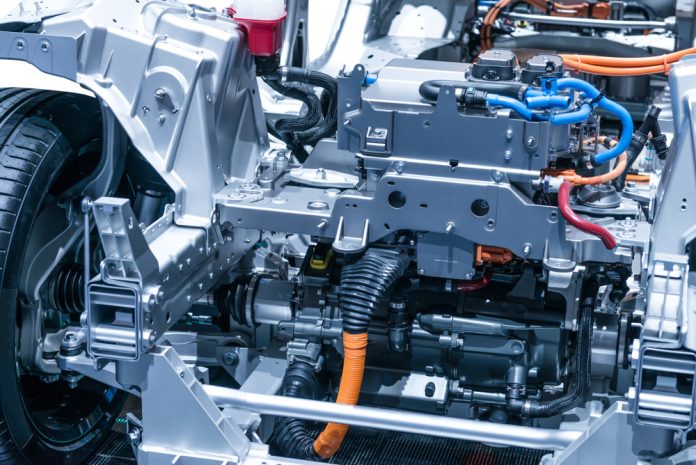The evolution of electric vehicles (EVs) relies heavily on advancements in powertrain technology.
However, developing these critical components is an intricate, time-consuming, and expensive process. Researchers at Graz University of Technology (TU Graz) have introduced a groundbreaking method that can dramatically shorten the electric vehicle powertrain development timeline.
By leveraging artificial intelligence (AI) and advanced simulation models, their OPED (Optimisation of Electric Drives) software can enhance electric vehicle powertrain design in a fraction of the time traditionally required.
AI-powered optimisation: The future of EV development
The OPED system, developed over nearly a decade, integrates evolutionary optimisation algorithms with component simulation models.
This innovative approach allows for a fully automated powertrain optimisation process, refining key elements such as power electronics, electric motors, and transmissions based on a manufacturer’s specific requirements.
By taking into account critical factors like cost, efficiency, and space constraints, OPED ensures optimal design configurations that meet industry demands.
The traditional manual approach to electric vehicle powertrain optimisation requires engineers to test and refine individual components painstakingly.
Changes to one element often have cascading effects on other parts of the system, making the process highly complex.
With AI-driven automation, OPED can rapidly evaluate thousands of design variations, identifying the best configurations in a matter of hours instead of months.
How OPED transforms the development process
The optimisation process begins with manufacturers inputting technical specifications such as power output, service life, speed requirements, and available space within the vehicle.
With these parameters, OPED evaluates approximately 50 different design variables simultaneously, systematically eliminating suboptimal variants while refining promising configurations.
This continuous refinement process ultimately yields electric vehicle powertrain solutions that align closely with a manufacturer’s priorities, whether those focus on energy efficiency, weight reduction, or cost-effectiveness.
The ability to streamline this process offers a competitive edge to automotive companies, allowing engineers to shift their focus from time-consuming manual calculations to high-level strategic decision-making.
The software’s efficiency has already drawn the attention of major industry players, with a leading Austrian automotive supplier successfully integrating OPED into its workflow.
From months to a single day: The power of AI
One of OPED’s most remarkable achievements is its ability to condense what was once a months-long development cycle into just one day.
By automating simulation, evaluation, and optimisation, the software removes the need for exhaustive trial-and-error testing.
This acceleration not only reduces costs but also facilitates more agile development, enabling manufacturers to bring cutting-edge electric vehicle powertrains to market faster than ever before.
AI-driven solutions like OPED are crucial in addressing the growing complexity of electric vehicle technology.
With manufacturers striving to meet increasingly stringent efficiency and sustainability standards, the ability to optimise powertrain components quickly and effectively is a game-changer.
Sustainability and platform optimisation
Beyond individual vehicle applications, OPED is also designed to enhance sustainability efforts.
Researchers have expanded the software’s capabilities to assess and minimise CO2 emissions throughout both the manufacturing and operational phases of a powertrain’s lifecycle.
This forward-thinking approach ensures that environmental impact is considered from the earliest stages of development.
Additionally, OPED’s versatility extends to optimising powertrains across entire vehicle platforms. By identifying shared components that can be used across multiple models, the software helps manufacturers reduce production costs and streamline supply chain logistics.
This innovation is particularly valuable for automakers looking to standardise powertrain elements across various EV models without compromising performance or efficiency.
A new era for powertrain development
The integration of AI into electric vehicle powertrain optimisation marks a significant leap forward for the automotive industry.
With the ability to automate and refine complex engineering decisions, OPED not only accelerates development but also enhances the efficiency, sustainability, and cost-effectiveness of EV powertrains.
As electric mobility continues to evolve, AI-driven solutions like OPED will play a pivotal role in shaping the next generation of high-performance, eco-friendly vehicles.
By reducing development time and improving design outcomes, this technology is setting new standards for innovation in the electric vehicle industry.









